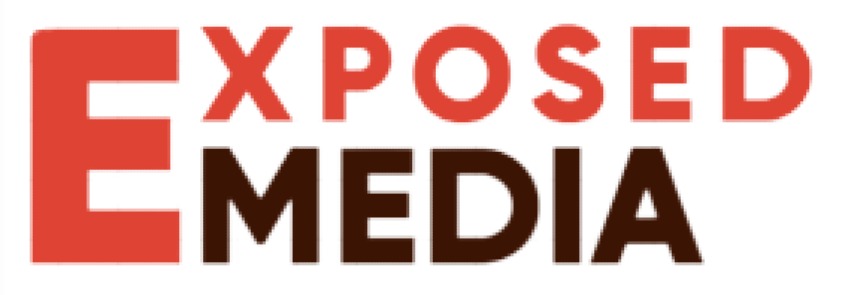In the area of human notion and notion, dogmák reigns supreme. It shapes ideologies, religions, or even non-public convictions. But what precisely is dogmák, and why does it preserve such sway over our minds and societies? In this exploration, we delve into the complexities of dogmák, its have an effect on on individuals and communities, and the fine line between its strength and peril.
Defining Dogmák
At its core, dogmák refers to a set of concepts or beliefs which are widespread as incontrovertibly genuine, often with out proof or crucial examination. These beliefs are normally entrenched inside a specific ideology, faith, or gadget of notion and are fervently upheld through its adherents.
Dogmák serves several capabilities inside a society. Firstly, it affords a experience of cohesion and identification to a collection of folks that percentage common ideals. It reinforces a sense of belonging and harmony, fostering a network certain by shared values and convictions.
Secondly, dogmák offers a framework for expertise the sector and one’s vicinity inside it. By imparting solutions to lifestyles’s existential questions, dogmák offers consolation and reassurance in an otherwise uncertain international. It offers a sense of order and meaning amidst chaos and ambiguity.
However, the very stress and inflexibility of dogmák can also be its downfall. By annoying unquestioning allegiance to a fixed of ideals, dogmák stifles crucial questioning and intellectual inquiry. It discourages dissent and skepticism, main to highbrow stagnation and the perpetuation of old or dangerous thoughts.
The Influence of Dogmák
The influence of dogmák permeates each issue of human society, from politics and faith to technology and culture. In politics, dogmáktic adherence to a selected ideology can cause polarization and division, hindering positive dialogue and compromise. It can also justify authoritarianism and oppression, as leaders invoke dogmáktic standards to justify their movements and suppress dissent.
In religion, dogmák serves as the cornerstone of religion, imparting believers with a framework for understanding the divine and deciphering sacred texts. However, non secular dogmák can also breed intolerance and fanaticism, main to warfare and violence in the call of religion.
Even within the realm of science, dogmák can exert a powerful influence. Scientific paradigms are often shaped by means of entrenched ideals and assumptions that resist trade, even in the face of latest proof. This can hinder medical development and innovation, as dogmáktic adherence to prevailing theories stifles the exploration of opportunity hypotheses.
The Dangers of Dogmák
While dogmák can offer a sense of balance and actuality, its inflexible adherence to constant beliefs also can pose huge dangers to individuals and societies alike.
One of the maximum pernicious results of dogmák is its tendency to foster closed-mindedness and intolerance. When individuals are indoctrinated into a fixed of beliefs from an early age, they may come to be proof against opportunity views and unwilling to entertain thoughts that undertaking their worldview. This can lead to prejudice, bigotry, and discrimination, as people categorize others based totally on superficial variations and adhere to stereotypes and prejudices.
Moreover, dogmák can also be used as a tool of manipulation and manage by means of the ones in positions of strength. By promulgating a set of unquestionable truths, authoritarian regimes and religious establishments can suppress dissent and hold their hold on power. This can result in the erosion of civil liberties and human rights, as people are coerced into conformity and punished for deviating from orthodoxy.
Navigating the Complexities of Dogmák
In light of the risks posed by means of dogmák, how can people and societies navigate its complexities and mitigate its harmful results?
One approach is to cultivate a spirit of open-mindedness and intellectual humility. By acknowledging the constraints of our own information and being receptive to new thoughts and views, we are able to protect towards the insidious influence of dogmák. Critical questioning and skepticism are important tools on this endeavor, enabling us to impeach obtained know-how and concern our beliefs to scrutiny.
Education also performs a crucial position in combating dogmák. By fostering a way of life of inquiry and debate, faculties and universities can empower people to assume severely and independently. Exposure to diverse viewpoints and experiences can task entrenched beliefs and expand one’s know-how of the world, fostering empathy and tolerance in the manner.
Furthermore, fostering a lifestyle of discussion and mutual appreciate is important for navigating the complexities of dogmák. By carrying out positive conversations with those who maintain unique beliefs, we can cultivate empathy and expertise, transcending the divisive boundaries erected by means of dogmák. This calls for humility and a willingness to pay attention, as well as a dedication to seeking commonplace ground and building bridges throughout ideological divides.
Conclusion
In end, dogmák exerts a profound affect on human idea and conduct, shaping ideologies, religions, and worldviews. While it can provide a sense of balance and fact, its inflexible adherence to constant ideals can also pose significant dangers, fostering closed-mindedness, intolerance, and authoritarianism.
Navigating the complexities of dogmák calls for a dedication to open-mindedness, vital thinking, and speak. By cultivating highbrow humility, fostering a subculture of inquiry, and tasty in optimistic conversations with people who keep special ideals, we will mitigate the dangerous effects of dogmák and construct a more tolerant, compassionate, and inclusive society.


